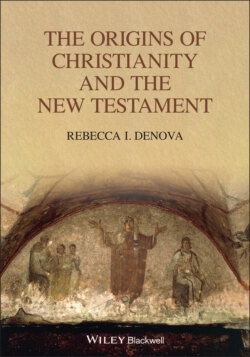Читать книгу The Origins of Christianity and the New Testament - Rebecca I. Denova - Страница 16
Religion
ОглавлениеIn the modern world, identity is often categorized by a specific religion (Jewish, Christian, Muslim, Hindu, etc.). What we mean by these terms is a “system of belief” that includes concepts, rituals, and social codes. But in the ancient world, the concept of “religion” as a “system” did not exist in the sense that we understand it today. In fact, there was no word for “religion” in ancient Greek or Hebrew. The modern term, which came into use in the seventeenth century, derived from the Latin root religio, sometimes translated as those things “that tie or bind one to the gods.”
All ancient peoples believed in the total integration of the divine (the gods, the powers in the heavens and under the earth), with humans and everyday life. If you stopped someone on the street and asked them what “religion” they practiced, they would have no idea what you were talking about. Instead, the question should be “What customs do you live by?” The typical response would be “The customs of our ancestors.” These customs were what identified people as ethnic groups, with a common ancestor, history, homeland, language, rituals, and mythology. All these elements were handed down by the gods and provided the basis for the governing authorities, the social construction of gender roles, and appropriate codes of behavior.
All ethnic groups shared common ideas and rituals concerning the divine, but there was no one “authority” to turn to; a concept such as the Vatican did not exist. If you had questions, you could consult a member of the priesthood (specialized experts), and you may receive different answers from different individuals. “Sacred Scriptures” varied from group to group and region to region. The closest concept such as our Bible was found in the works of Homer, The Iliad and The Odyssey. Everyone in the Mediterranean Basin knew these stories, which included stories of constant interaction with the gods.
